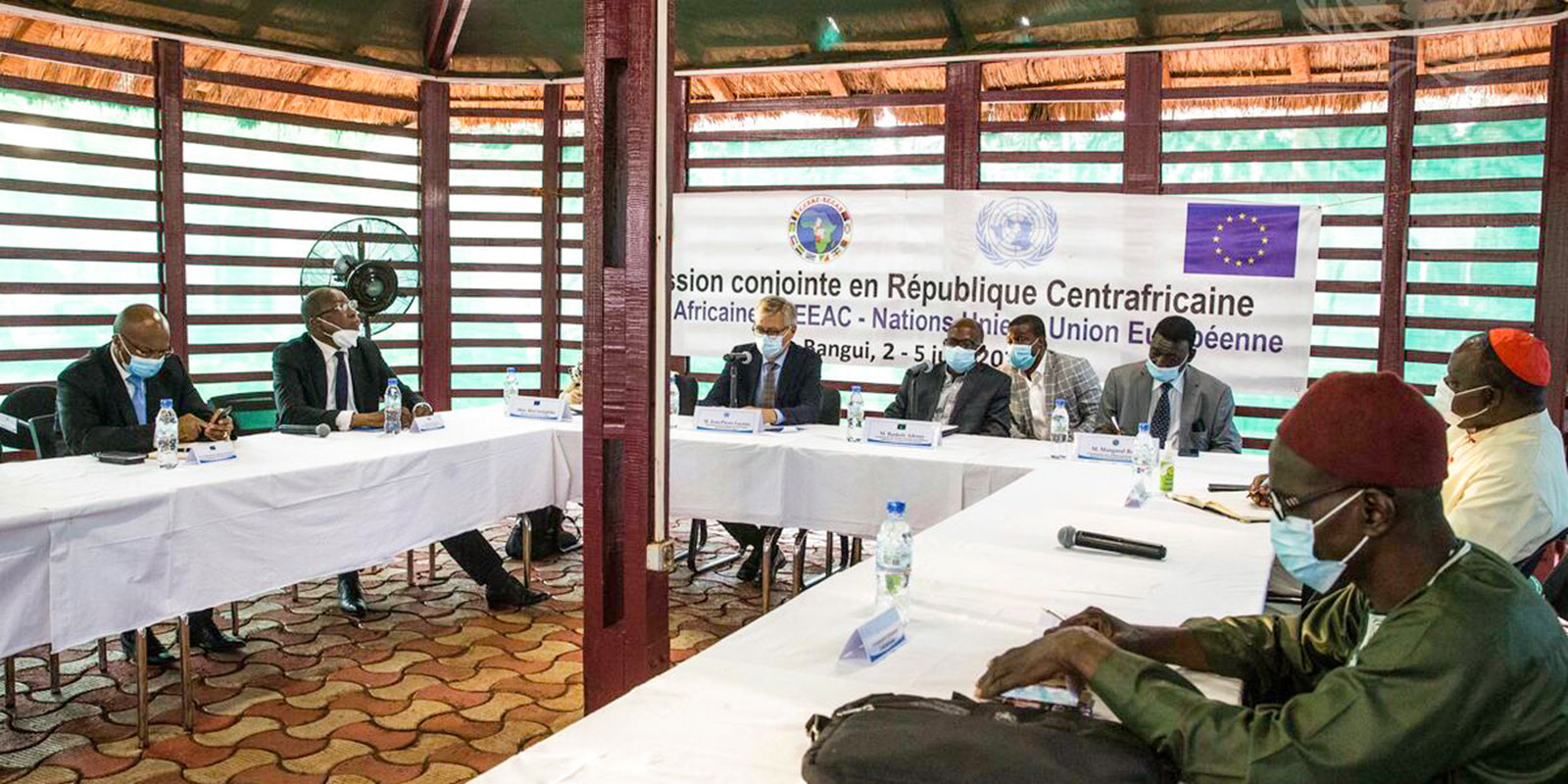In the aftermath of the socio-political upheavals of the end of the last century, the Heads of State and Government of the African Union (AU) quickly took a stand and declared in unison the need to work for the development of peace, stability and non-violence. To eradicate, on the continent, the rampant insecurity by land, sea and, sometimes, by air; to put an end to feelings of deprivation of liberty, continental ill-being and historical injustices, the Heads of State and Government have adopted Agenda 2063.
Being, thinking, acting and communicating peace and non-violence in society is constituted in many distinct ways.
Tweet
The Biennial for the Culture of Peace and Non-violence, or the Luanda Biennale, is one of the continental responses to this emergency, and its place on the year’s thematic Roadmap adopted by the 37th ordinary session of the Executive Council of the AU – on 13-14 October 2020 – reminds us that being, thinking, acting and communicating peace and non-violence in society is constituted in many distinct ways. And, put in this way in a political act, it expresses confidence in the capacity of culture to orient social transformations and to define the poles of identification.
Following his visit in October 2020 to Mr. João Gonzalves Lourenço, President of the Republic of Angola, Ambassador Gilberto Da Piedade Verissimo, President of the Economic Commission for Central African States (ECCAS) gave the Department for Gender Promotion, Human and Social Development, the responsibility of taking an active part in the organising of the “Biennale de Luanda”, which is held every two years in our sub-region, in the Republic of Angola. For ease of reference, the Biennale takes place in line with the AU Decision 558 / XXIV, adopted in 2015 at the 24th session of the Assembly of Heads of State and Government establishing the Luanda Biennial and requesting the Commission (AUC) to work towards its organisation in consultation with The United Nations Educational, Scientific and Cultural Organisation (UNESCO) and the Government of Angola.
More importantly, the Luanda Biennale, as a joint initiative of UNESCO, the AU and the Government of Angola, aims to promote the prevention of violence and the resolution of conflicts, by encouraging cultural exchanges in Africa and dialogue between generations. As a space for reflection and dissemination of artistic works, ideas and best practices related to the culture of peace, it brings together representatives of governments, civil society, the artistic and scientific community, and international organisations.
Determined to influence, motivate and make other Regional Economic Communities (RECs) sensitive to the cause of this continental project, the ECCAS Commission has worked to ensure that all stakeholders, including the Panel that accompanies the mandate of President Félix-Antoine Tshisekedi Tshilombo at the helm of the AU, is positioned to contribute to the effectiveness and profitability of the continental project. In this role, the ECCAS Commission has convened and chaired a series of meetings aimed at mobilizing its counterparts from other regions of the continent. From the rich and intensive exchanges which took place on 12 and 13 August 2021, it already appears that if the first edition of the biennial focused more on the creation of the event; the second edition to be held under the theme: “Strengthening the Pan-African Movement for a Culture of Peace and Non-violence: Towards a Global Partnership,” is already shaping up to be the one that will give more substance, anchorage to regional and national levels efforts, openness, inclusivity and sustainability.
Anxious to work for a daily and sustainable collective appropriation and implementation, on the continent, for the concept of a culture of peace, which consists “of values, attitudes and behaviours reflecting and promoting conviviality based on the principles of freedom, justice and democracy, human rights, tolerance, solidarity, including respect for gender equality; rejecting violence by tackling their root causes and resolving problems through dialogue and negotiation,” the RECs are eager to establish a sustainable regional political dialogue with the Biennale’s Steering Committee with the objective of implementing innovative, bottom-up, coordinated projects, programs and resolutions to “Silence the Guns in Africa”, as well as develop a framework document on the creation of an Alliance of Partners to support the implementation of flagship initiatives.
It is worth noting that all RECs will participate in person in the second edition of the Biennale, which will be held in November 2021, in Luanda, where they will sign a Joint Declaration in favour of the culture of peace and non-violence throughout the African continent.
Kapinga Yvette Ngandu is theCommissioner for Gender, Human and Social Development in the ECCAS Commission.


